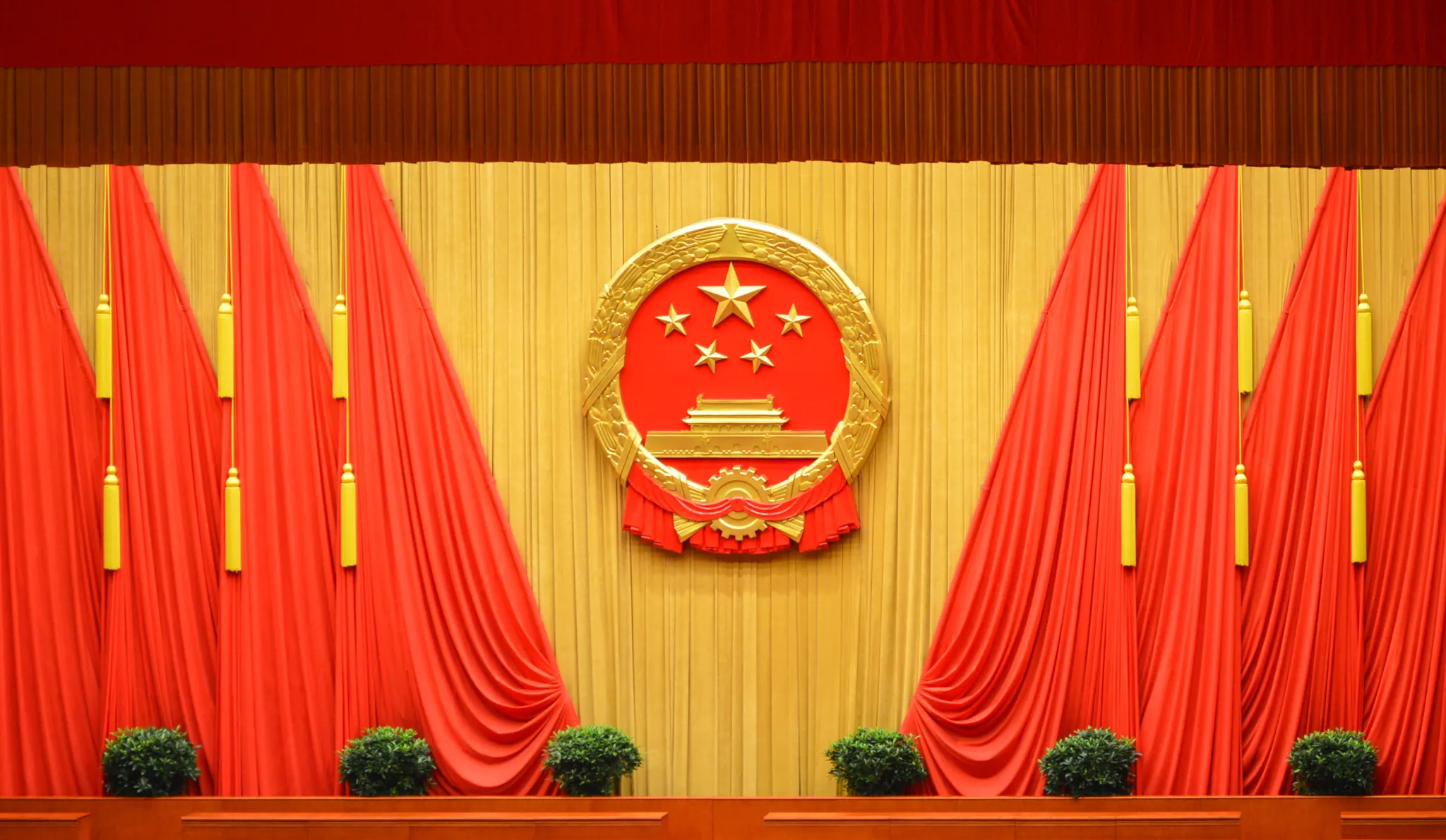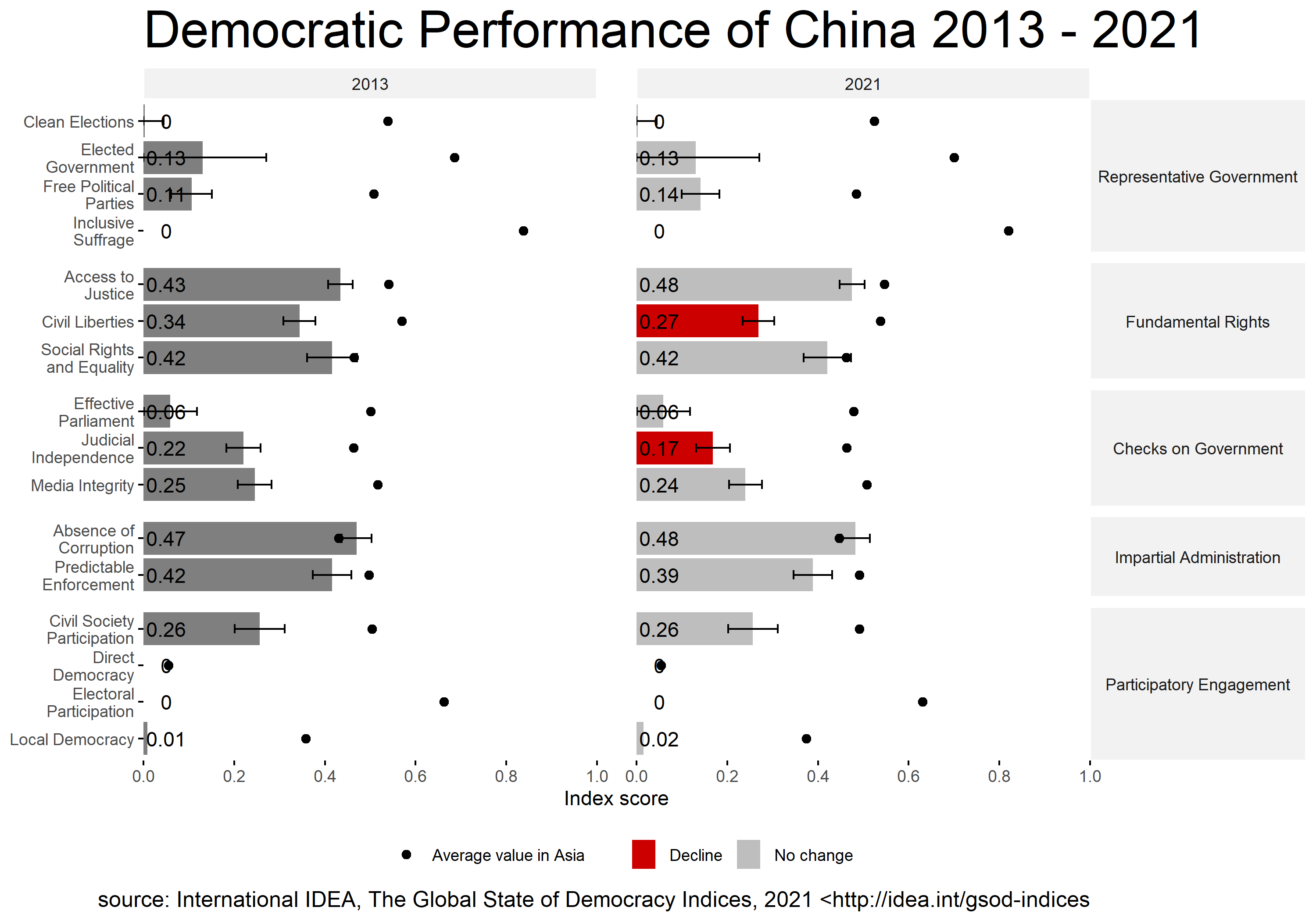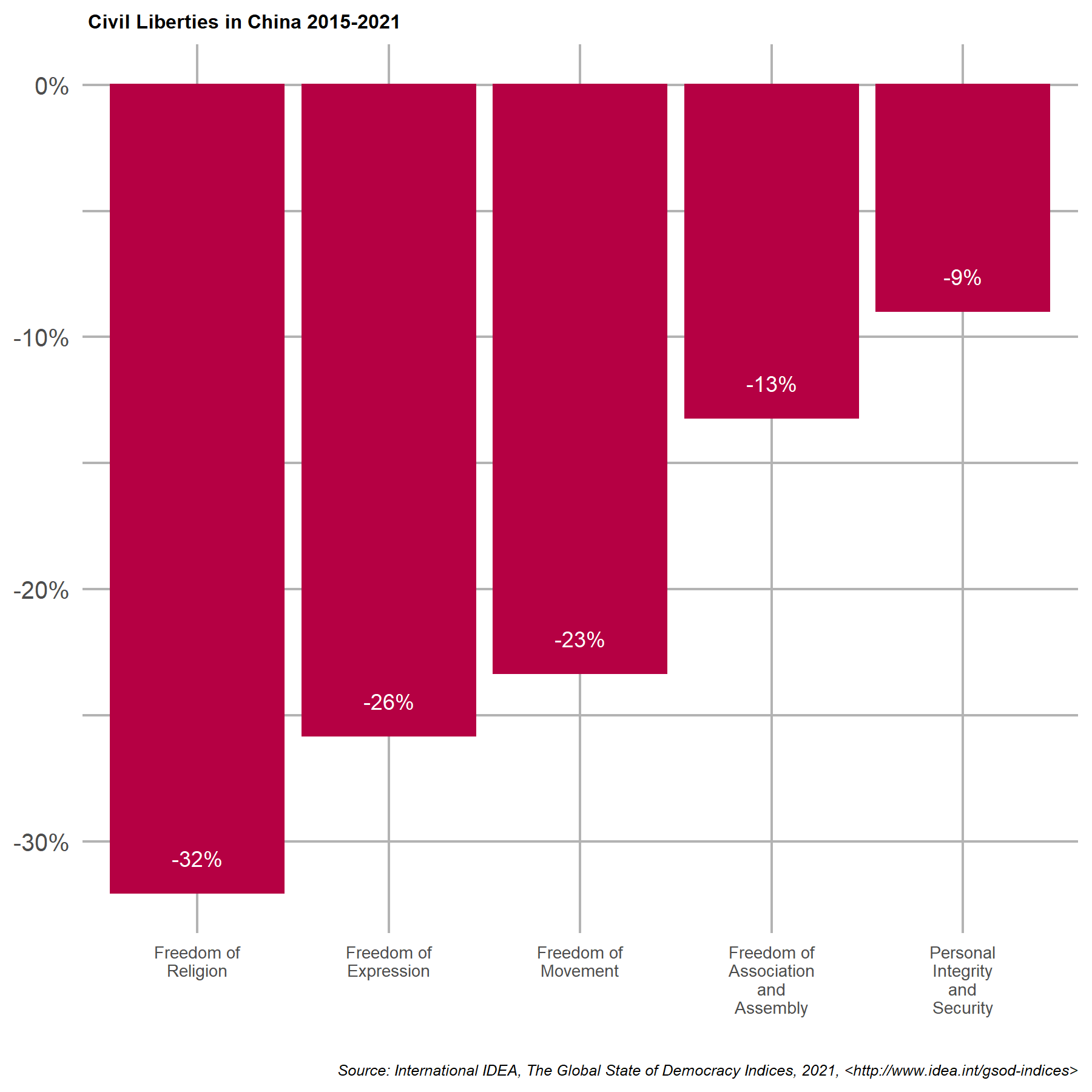
Xi Jinping has changed China profoundly since he became the country’s premier in 2013. The Communist Party of China (CPC) argues that China is wealthier, with significantly less poverty and is a advancing in technological innovation, which are all objectively true. Yet, China is also more authoritarian and more inward looking; digital surveillance is ubiquitous, and the regime has become more assertive in pushing its foreign policy interests, usually to the detriment of global democratic values at national and multilateral levels. China’s scores in the Global State of Democracy Indices have reflected this increasing authoritarianism, with no improvements in any subattribute since 2013 and negative trends manifesting especially in Civil Liberties and Judicial Independence.

Now, breaking with a long tradition, Xi Jinping has sidelined all possible internal opposition and walks unabated towards a third term. As a result, the world can expect a more authoritarian China in three fundamental ways.
Total control of the party
Xi has stifled dissent inside the Party, ending decades of collective leadership. Designed by Deng Xiaoping, collective leadership sought to prevent dictatorial tendencies and has gradually and consistently decentralized power, a trend that Xi has reverted. Although the CPC runs China as an uncontested one-party state, collective leadership has historically prompted internal discussion among different factions. Although the discussion was sometimes more about access to power than policy, it facilitated the arrival of fresh ideas to the Politburo. Xi Jinping has ended nearly three decades of power-sharing between the Shanghai Gang and the Youth League Gang, the two most prominent factions within the party. This consolidation of power means that Xi’s unprecedented third term—and even potential future terms—faces no opposition.
Making China look like the party, instead of making the party look like China
Secondly, Xi has reversed the adaptation of the Communist Party to Chinese society and economic evolution and has instead brought society and the economy in line with the party’s priorities, for instance by cracking down on technology companies. This has been done by increasing the presence of the party in society, by closing civic space even further and by building a digital surveillance system that gives the party eyes and ears on the people’s private lives. The Global State of Democracy Indices have recorded gradual decreases in civil liberties in China during Xi’s tenure.

A more assertive China globally
Under Xi, China is taking a new, more assertive, and nationalistic role at the global level, both in its bilateral and its multilateral relations. China has unabashedly defended its policies in Hong Kong and Xinjiang, even amid reports of human rights violations in both places. It has ramped up efforts at the multilateral level to alter the international order by pushing a global vision of sovereign nations that do not meddle in other nation's internal issues. Its influence in Asian countries has grown steadily through a combination of like-minded alliances, such as with Cambodia, and the fact that most countries cannot afford to economically ignore China. Its footprint is now a key political concern in countries from Angola to Vietnam and its Belt and Road initiative has being used to create unsustainable national debts in many countries such as Sri Lanka or Laos. This power has been used by China to increase its claim on the South China Sea and expand its influence in Southeast Asia despite of most countries in the region.
The 20th Communist Party Congress has only made clear that Xi’s grip on power is uncontested and unquestionable. A more open China is further away than it has ever been in the last decades, and Xi’s seemingly indefinite reign has all but sealed any possible window of opportunity for it. This is the China that Xi has designed; this is the China that Xi will lead.




